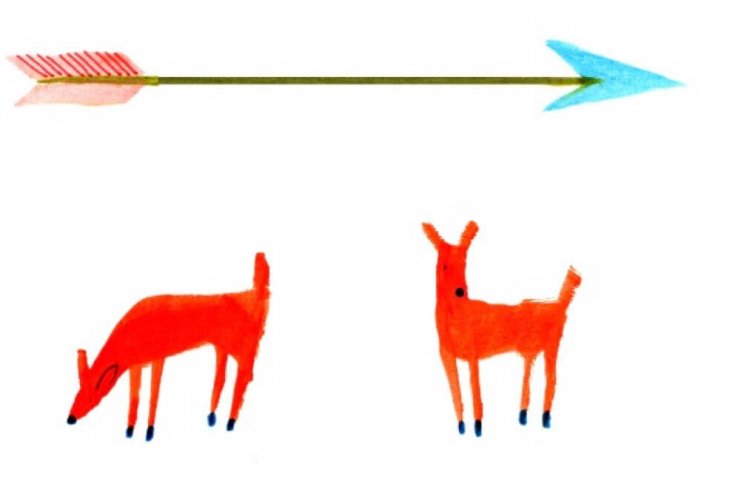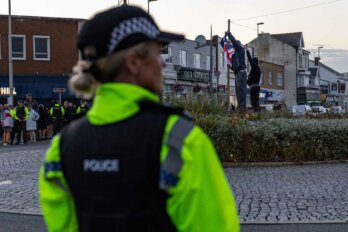
I just spent twenty-four hours in Fort Albany, Ontario. Where? Get a map of Canada and go about halfway up the west side of James Bay. And there’s Fort Albany, a First Nations community of about 500 people.
The idea of my going there began with an email from the writer Joseph Boyden: could I come to the community’s Great Moon Gathering? It’s a conference of educators, featuring workshops on the Cree language, restorative justice, food security, and many other subjects related to contemporary aboriginal life. And oh, there’d be a concert with local musicians and the Tragically Hip. Could I cover the Gathering? Could I do a documentary about it for the CBC? (No, the national broadcaster would sit this one out. But Joseph Boyden asking me to do anything is hard to resist. I still wanted to go.) “We want to show this community some guerrilla love,” he wrote.
Three days later, having travelled from the Gulf Island where I live in BC, I found myself in the Thunder Air lounge in Timmins, Ontario. A young Cree man with the build of Ichabod Crane and I sat alone, the only passengers waiting for a Caribou cargo plane to carry us on. We introduced ourselves over coffee. His last name is my mother’s maiden name; we joked that we may be related. He told me he was on his way to Moosonee to try for a job with De Beers at the diamond mine.
We were up and away in no time. The trees below us shrank the higher and farther we flew. Thunder Air Flight 500 is a frozen milk run: first Moosonee, then Fort Albany, Kashechewan, and finally Attawapiskat, where a housing crisis made national news last fall. The first leg was a quiet, uneventful hour, with little conversation over the drumming of the engine. I talked to the pilot, Dave, for a moment after we landed. When I turned to my fellow traveller, I saw that he was being handcuffed by the RCMP. It happens, Dave said. Welcome to the north.
There was no one waiting for me at Fort Albany Airport. Ordinarily, I would have worried. But I was learning things in this part of the country are fluid. A Thunder Air employee, working out of an office the size of a closet, asked what I was doing. Ten minutes later, someone came to drive me to the conference at Peetabeck Academy, the local school. I walked inside and had a steaming bowl of turkey soup popping with root vegetables placed in my hand. When I tried to find out where I’d be staying that night, I was told, “Don’t worry. You’re here, aren’t you?”
The first person I met who I know (well, sort of) was Paul Langlois, one of the great guitarists from the Tragically Hip. Minutes later, I was bear hugged from behind. It was Joseph, who’d been out ice fishing with the rest of the band. They didn’t catch anything, but that’s entirely beside the point. You go out on the land (which is, in fact, frozen water), and you hear the quiet, feel the peace, revel in the endless white.
I ran into the children’s writer and illustrator Janet Wilson, a former neighbour of mine. She’s written a book called Shannen’s Dream, about Shannen Koostachin, a teenager from Attawapiskat who lead the fight to get a new school for her community. About two years ago, sadly and shockingly, Shannen was killed at the age of fifteen in a car accident. Janet had come to the conference to do a workshop on youth empowerment, using Shannen’s story. Her hope for a school lives on, as her friends and fellow students have taken up the fight. And it will happen.
In the hallway, there was shrieking and laughing as kids lined up to touch a Van de Graaff generator and have their hair stand on end. I met a confident young member of the Moose Cree First Nation named Gilbert Cheechoo Jr.—and yes, he’s related to the NHL’s Jonathan. Gilbert, an investment officer in nearby Moose Factory, had come to do a workshop on student success. Watch out world, here comes the next big Cheechoo.
I took in Grand Chief of the Mushkegowuk Council Stan Louttit’s session on Treaty No. 9, the early 1900s agreement that covers almost two-thirds of what became northern Ontario, and the recent discovery of a diary kept by George MacMartin, Ontario’s commissioner for the negotiations. Because aboriginal history is based on oral tradition, the First Nations’ record of the treaty has been passed down from the people present at its signing. There has been much debate about what was offered by the government and what was actually written down. In MacMartin’s diary, there’s mention of oral promises made to the First Nations that never made it onto the treaty’s printed pages. It was a riveting session.
At day’s end, I was called upon to introduce Joseph Boyden as the conference banquet’s keynote speaker. In other circumstances, I’d have prepared something. At the Great Moon Gathering, I just went up.First, I thanked the Fort Albany First Nation for the warm welcome to their territory. I do this no matter where I am—whether it’s Toronto (Mississaugas of the New Credit) or Lantzville, BC (Snaw’Naw’As). It’s important that we think about the deep history of Canada, even if just for a moment. Then I talked about my friend Joseph as a great guy who treasures this part of the country. For several years, he worked as a teacher up and down the west coast of James Bay. This land is his muse, and he dearly loves its people.
Joseph delivered a speech in three acts. It was about this land; it was about stupid stereotypes of this land and its people emanating from southerners who’ve never been here; and it was about respect. It was funny, fitting, just right.
Afterward, the banquet tables were cleared for the concert. There were about ten local acts to begin, with the Hip bringing up the rear. Security was tight, with about ten RCMP and Nishnawbe-Aski officers in full gear. Though they couldn’t have been friendlier, they seemed out of place, if only for the sheer number of them. I saw several locals in black t-shirts stamped with SECURITY in bold white letters. One was the writer and producer Phoebe Sutherland, who’s just made a sixteen-minute film—entirely on an iPhone—called Eulogy from the White House. Phoebe wrote and produced it. John Kapashesit, one of the night’s performers, directed.
I shared the concert’s hosting duties with freelance emcee Brent Edwards. We had a fiddler, several singer-songwriters, and an elder who came across as the Cree Johnny Cash. Finally we came to a high school band that had been together for exactly two days. We’ll get through it, I thought before they began to play. But once they got going, with twins Cory and Cody on guitars, and a singer named Rosette belting out big notes, they were really good. Suddenly, the Hip’s Gord Downie joined them—and no one batted an eye. It was a huge moment.
The Tragically Hip hadn’t played a gymnasium for twenty years. Brent and I were gearing up to introduce them, but never got the chance: we looked up and they were already on stage, ready to play. No announcements. That’s fine . . . and fluid. The first thing Gord said was migwetch—thank you. The audience went nuts. Phoebe Sutherland, who’s an expert at goose calls, added her noise to the cheers. Only in the north.
For starters, the Hip did five songs from an upcoming album—none of which had ever been played for a live audience. Then came some hits: “Bobcaygeon,” “New Orleans Is Sinking.” And Fort Albany was over the moon. “And for the way we’re feeling, 700-foot, 700-foot ceiling.”
There was an after party, and my twenty-three-year-old inside self said “Ya gotta,” and I did. I talked politics with Hip guitarist Bobby Baker; Mother Earth and healing with the conference’s organizer, Edmund Metatawabin; and Canada with Gord Downie. My inside self said, “Pinch me, I’m dreaming.” I used to host a show on the radio called Sounds Like Canada. And when I said that, I always thought the Tragically Hip really sound like Canada. I have loved their drilling and prospecting into the land, the water, the people, the stories, the legends. That night, there they were, on one big sectional, hanging with Joseph, me, and the Cree.
I still didn’t know where I’d be sleeping. I knew it wasn’t with the band (I mean, a room in their lodgings). Joseph and Amanda thought there was room at the house they were sharing, and sure enough there was a bed. No sheets, no pillowcases on the pillows, but a bed. And I had the best sleep ever.
The next day, the weather had morphed from balmy –6 to –19 with a windchill of –27. The feeling at Peetabeck Academy was celebratory, a holdover from the concert. When I arrived, the morning sessions were rolling. Soon, great smells came from the kitchen. Aromatic soups and stews got the juices going. The lunch banquet was in the gym, which had been stripped of all rock band gear. Everyone was grateful for the hot food on a cold day. There was excited talk about the workshops when suddenly Brent Edwards was back at the podium with an announcement: a six-year-old from the community had just died in hospital.
Brent asked us to stand and close our eyes for a moment of silence. After a time, the hush was broken by a drum beat. I opened my eyes and there was Gilbert Cheechoo Jr., drumming and plaintively singing something in his language. It was an emotional, bittersweet tune; Gilbert’s voice caught several times. When I asked an elder what was the music, I was told it’s a travelling song. What else could it have been?




